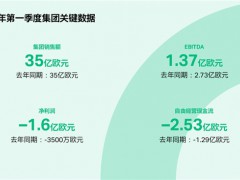尽管美国战略石油储备发布了创纪录的数据,但美国的石油库存仍徘徊在多年来的低点附近
与经济周期密切相关的馏分燃料油库存处于2000年以来的最低水平
经济放缓可能有助于重新平衡极低水平的馏分油库存
据美国油价网7月31日报道,尽管美国战略石油储备发布了创纪录的数据,有报告称过去几周汽油需求因高油价而减弱,以及经济放缓,但今年这个时候美国石油库存仍处于多年来的低点。过去几个月,商业原油和成品油库存未能重建,且需求低水平表明汽油和柴油市场在短期内将持续吃紧,这可能会支撑油价。
不过,在美国汽油平均价格在6月中旬触及每加仑5美元的纪录高位以后,最近几周美国汽油需求下降成为市场关注的重点。再加上对经济衰退的担忧,WTI原油价格承压。美国基准原油指数本周比国际布伦特原油指数的折扣幅度达到3年多来最大。
汽油需求下降令WTI承压,而布伦特原油价格则反映出全球现货供应紧张,这是受西方制裁以及欧盟将在今年年底前实施的石油禁令的推动。WTI对布伦特原油的3年来最大折扣推动了美国原油出口的激增,在截至7月22日的报告周,美国原油日出口量创下450万桶的历史新高。
不过,最近的数据显示,汽油需求的下降并不像最初看起来那么明显,美国能源信息署(EIA)公布的数据显示,美国过去4周平均汽油需求仍呈上升趋势。
尽管有迹象显示WTI原油价格面临下行压力,但美国多年来的石油库存(有些产品是几十年来最低的)是油价的一个强劲看涨因素,不过这并不意味着它可能超过市场对经济衰退的担忧。
EIA数据显示,截至7月22日的最新报告周,美国商业原油库存减少450万桶。美国原油库存降至4.221亿桶,比今年同期的平均水平低约6%。汽油方面,上周库存减少330万桶,比5年同期平均水平低大约4%。包括柴油在内的馏分油是美国今年最吃紧的市场,目前的库存水平比5年季节性平均水平低23%。
根据路透社市场分析师约翰·肯普汇编的数据,美国与经济周期关系最为密切的馏分燃料油库存处于2000年以来的最低水平。到目前为止,第三季度的馏分油库存增加不到100万桶,这是一个异常低的库存增加速度。肯普指出,这是过去40年里最少的馏分油库存之一。
肯普认为,经济放缓可能有助于重新平衡这些极低水平的馏分油库存,但这种重新平衡可能需要更深入、更持久的经济低迷。
事实上,美国经济正在放缓。美国商务部7月28日公布的预估数据显示,继第一季度下降1.6%之后,美国第二季度GDP下降0.9%。理论上,GDP数据符合经济衰退的一个常见定义——连续两个季度的GDP收缩。
但政策制定者坚持认为,此次“技术性”衰退并非大范围衰退,因为经济中的许多领域仍在走强,尤其是劳动力市场,而推高通胀的外部条件是独一无二的。
美国财政部长上周末在美国全国广播公司(NBC)的《会见媒体》节目上说:“当一个月创造近40万个就业岗位时,这还不算衰退。”
美国政策制定者承认美国经济放缓,但美国经济并没有出现全面衰退的迹象。
美联储主席在本周美联储宣布再次加息75个基点后的新闻发布会上说:“我认为美国目前没有陷入衰退,原因是有太多的经济领域表现得太好了。”
他说:“去年美国的经济增长非常高,百分之五点五。我们本来预计增长会放缓。现在也有更多的放缓。”鲍威尔重申了美联储的“软着陆”目标。
他补充说:“如果你想想经济衰退到底是什么,那就是很多行业普遍衰退,持续几个月以上的衰退,其中有很多具体的测试。而现在的情况似乎并非如此。”
李峻 编译自 美国油价网
原文如下:
Demand Destruction Could Help America Refill Its Oil Inventories
· America’s oil inventories are hovering around multi-year lows despite releases from the SPR.
· Distillate fuel oil inventories, which are most closely related to the economic cycle, are at the lowest for the time of year since 2000.
· An economic slowdown could help rebalance very low levels of distillate stocks.
· U.S. petroleum inventories are still sitting at multi-year lows for this time of the year despite record releases from the Strategic Petroleum Reserve (SPR), reports of weakening gasoline demand over the past weeks because of high prices, and a slowing economy. Commercial crude and product stockpiles have failed to rebuild over the last few months, and the low levels point to continued tight markets for gasoline and diesel in the short term, potentially supportive of oil prices.
· Yet, emphasis has been placed on a fall in U.S. gasoline demand in recent weeks after the national average price hit a record $5 a gallon in the middle of June. This, combined with fears of a recession, have weighed on WTI Crude prices. The U.S. benchmark hit this week its widest discount in over three years compared to the international Brent Crude benchmark.
· This faltering demand for gasoline has weighed on WTI, while Brent prices reflect tight global physical supplies, buoyed and Western sanctions, as well as the European Union ban oil set to be implemented before the end of this year. The biggest discount of WTI to Brent in three years is driving a surge in U.S. crude oil exports, which hit a record high of 4.5 million barrels per day (bpd) in the reporting week to July 22.
The most recent data, however, shows that gasoline demand destruction isn't as clear-cut as it initially looked, with the four-week average gasoline demand still trending upward, according to EIA data.
Despite signs of downward price pressures on WTI Crude, the lowest U.S. petroleum inventories in years—for some products in decades—are one strong bullish factor for oil prices, although it's not a given that it could outweigh market fears of recession.
In the latest reporting week to July 22, commercial crude oil inventories declined by 4.5 million barrels, the EIA data showed. At 422.1 million barrels, U.S. crude oil inventories are about 6% below the average for this time of the year. In gasoline, inventories decreased by 3.3 million barrels last week and are about 4% below the five-year average for this time of the year. Distillates, which include diesel, have been the tightest market this year, with current stockpile levels 23% below the seasonal five-year average.
Distillate fuel oil inventories, which are most closely related to the economic cycle, are at the lowest for the time of year since 2000, according to data compiled by Reuters market analyst John Kemp. So far in the third quarter, distillate stockpiles have risen by less than 1 million barrels, an unusually low pace of inventory builds. This is one of the tiniest distillate inventory builds of the past four decades, Kemp notes.
An economic slowdown could help rebalance those very low levels of distillate stocks, but the rebalance could need a deeper and longer downturn in activity, Kemp argues.
Indeed, the U.S. economy is slowing down. The advance estimate from the U.S. Department of Commerce showed on Thursday that GDP contracted by 0.9% in the second quarter, following a 1.6% decline in Q1. In theory, the GDP data met one common definition of a recession—two consecutive quarters of GDP contraction.
But policymakers insist the 'technical' recession is not a broad-based recession because many areas in the economy are still going strong, especially the labor market, and external conditions pushing inflation higher are unique.
"When you're creating almost 400,000 jobs a month, that is not a recession," U.S. Treasury Secretary Janet Yellen said on NBC's Meet the Press last weekend, a few days before the GDP data was released.
Policymakers admit there is a slowdown, but the U.S. economy doesn't present broad-based signs of a recession.
"I do not think the U.S. is currently in a recession. And the reason is there are just too many areas of the economy that are performing too well," Fed Chair Jerome Powell said at a press conference this week after the Fed announced another 75-basis-point hike in key interest rates.
"Really the growth was extraordinarily high last year, 5 and a half percent. We would have expected growth to slow. There's also more slowing going on now," Powell said, reiterating the Fed's goal of a "soft landing."
"If you think about what a recession really is, it's a broad-based decline across many industries that sustain for more than a couple of months and there are a bunch of specific tests in it. And this just doesn't seem like that," the Fed Chair added.
免责声明:本网转载自其它媒体的文章及图片,目的在于弘扬石化精神,传递更多石化信息,宣传国家石化产业政策,展示国家石化产业形象,参与国际石化产业舆论竞争,提高国际石化产业话语权,并不代表本网赞同其观点和对其真实性负责,在此我们谨向原作者和原媒体致以崇高敬意。如果您认为本站文章及图片侵犯了您的版权,请与我们联系,我们将第一时间删除。







